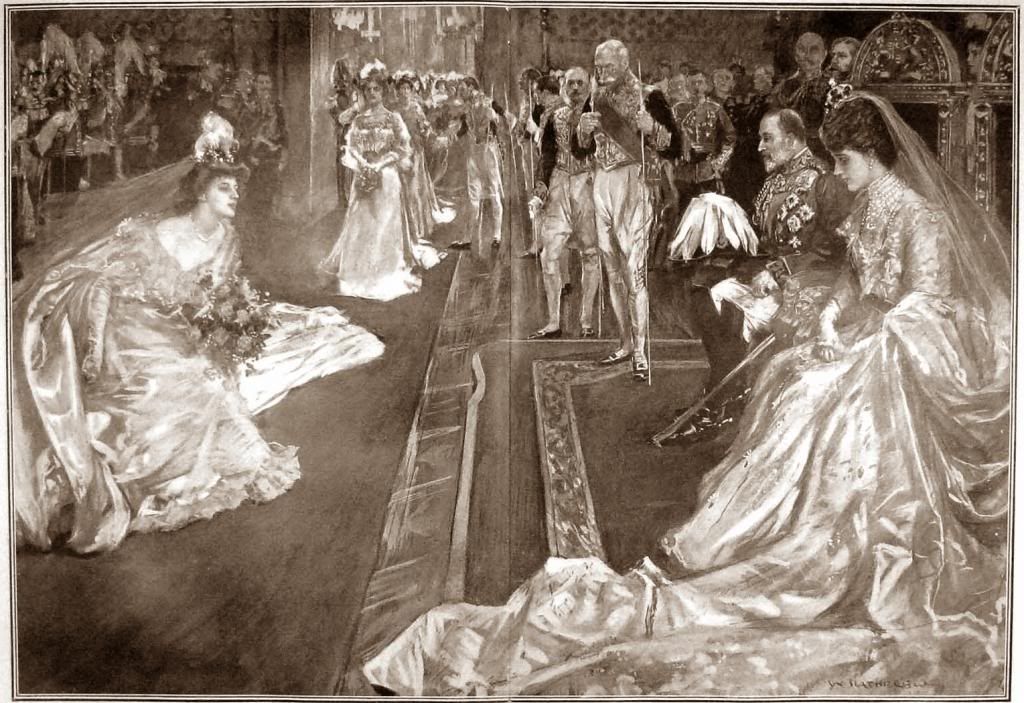Politeness is a qualification; it reassures other
members of a group that you are not a threat to the status quo. By
performing politely, you display to others that you can be trusted in their
company, that your behaviour will conform to the accepted mores, that
you are also a member of the group. Politeness is a badge that lets us know
that you are one of us, that you belong here, that we all know our places.
 |
| Some of our Cousins |
Many
millennia ago, our simian ancestors needed such assurances from other members
of the clan, but also from strangers and outsiders, they needed to know that
everyone was aware of their place in the pecking order and acknowledged that
place. We crave order, we look for patterns, we like the expected and the
normal; disorder, chaos and the abnormal starts our survival instinct bells
ringing, it puts us on edge, it raises our suspicions, it makes us uneasy. We
like things to be right. We don’t like it when things go wrong. We are at our
most vulnerable when we sleep and when we eat – try this little experiment.
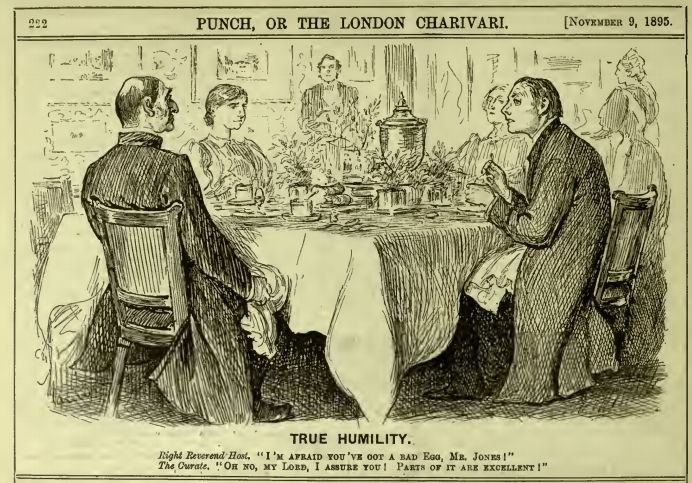 |
| True Humility - The Curate's Egg - Punch - 1895 |
Watch others when they are dining in public. Groups of people are usually at
ease, they interact with each other; they talk and joke and frequently look at
each other, ignoring what is going on around their group. Now look at a lone
diner. Unless they are in a familiar place that they know to be safe, they will
constantly look around; they may even not look at the food as they put it into
their mouth, but will continue to scan the room, in order to identify any
potential threat as they feed.
 |
| Dinner is Scared |
Think of animals out on the savannah – the herds
have plenty of eyes that will spot an approaching lion long before it gets too
near; the individual creature is jumpy, ready to run for it, they snatch a
mouthful of food and then raise their head and look around for the unexpected,
the unusual or the threatening. We continue to respond to the same instinct
that lies deep in our consciousness. So, when we stopped living on the plains
of Africa and started living in houses and stopped expecting lions or leopards
to interrupt our feeding patterns, we sublimated our instinctual urges and
table manners were born.
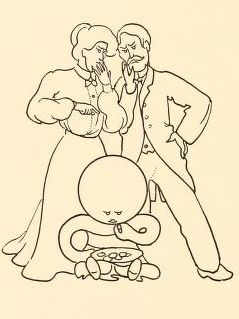 |
| Table Manners |
That’s why the early courtesy books were so big on
table manners – if you’re going to fit in, you need to know how to behave when
you’re eating with the rest of us. Here’s some sound advice from Caxton’s The
Boke of Curtesye (1477):
 |
| William Caxton - The Boke of Curtesye - 1477 |
Touche not with your mete salt in the salerLest folk apoynte you of vnconnyngnesseDresse it aparte vpon a clene trencherFarse not your mouth to ful for wantonesseLene not vpon tbe table for that rude isAnd yf I shal to you playnly sayeOuer the table ye shal not spetel conueyeTouch not with meat salt in the cellar,Lest folk appoint you with uncunningness [ignorance]Dress it apart, upon a clean trencher [plate]Force not your mouth too full for wantonness [greed]Lean not upon the table, for that is rudeAnd if I shall to you plainly say,Over the table you shall not spit convey.
Contemporaneously with Caxton’s work is The Boke
of Nurture by John Russell, which is a guide for serving men although it
covers the manners expected by all in the dining room.
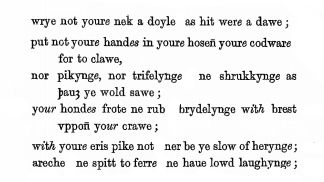 |
| John Russell - The Boke of Nature c.1470 |
Wrye not youre nek a doyle as hit were a dawe;Put not youre handes in youre hosen youre codware for to clawe,Nor pikynge, nor trifelynge ne shiukkynge as thau ye wold sawe;Yowr hondes frote ne rub brydelynge with brest vppon yowr crawe;With youre eris pike not ner be ye slow of herynge;Areche, ne spitt to ferre, ne haue lowd laughynge.Do not twist you neck awry like a jackdaw,Do not put your hands in your hose, your cods [testicles] to scratch,Do not pick, trifle or shrug as if you are sawing {wood},Do not scratch or rub your hands, or puff out your chest,Or pick your ears nor be too slow of hearing,Or retch, nor spit too far, nor laugh too loudly.
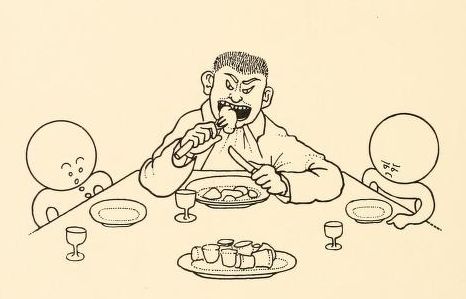 |
| Dear Oh Dear ... |
So, now you know. And if you think this is all
frightfully amusing and how terrible those mediaeval chappies were, here are a
few tips from Etiquette and Service of the Table from 1920;
The proper attitude at the table is an erect one. One should not slide down in the chair, rest one's arm on the table, crowd, or discommode one's neighbour. One should eat slowly and quietly, never talking while food is in the mouth.Salt should never be put upon the table-cloth but on the side of a dish—preferably the bread-and-butter plate—unless individual salts are provided.Toothpicks, like toothbrushes, should be used only inside of one's room.Soiled hands, negligee dress, shirt-sleeves and dishevelled hair are inexcusable.No hot drink should be poured from the cup into the saucer.
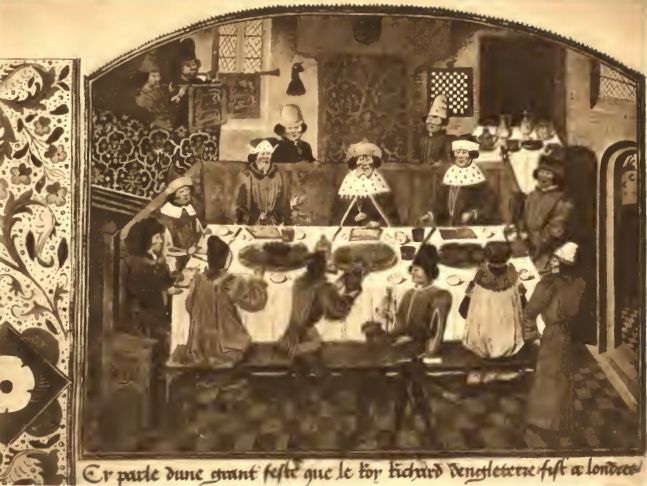 |
| Plus ca Change ... |
Hardly all that different at all, really.
